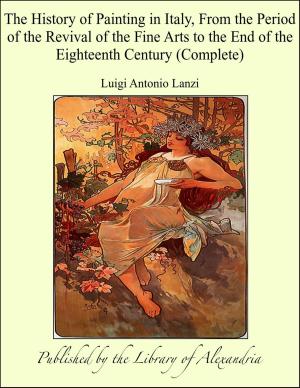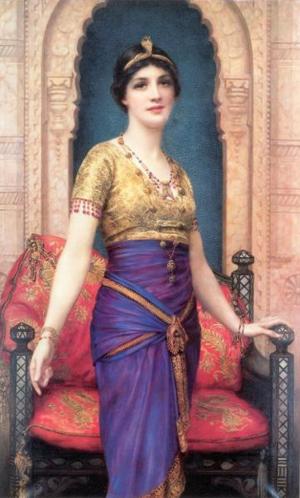| Author: | William Harvey Christie | ISBN: | 9781465620187 |
| Publisher: | Library of Alexandria | Publication: | March 8, 2015 |
| Imprint: | Language: | English |
| Author: | William Harvey Christie |
| ISBN: | 9781465620187 |
| Publisher: | Library of Alexandria |
| Publication: | March 8, 2015 |
| Imprint: | |
| Language: | English |
The mansion in which dwelt the Delmés was one of wide and extensive range. Its centre slightly receded, leaving a wing on either side. Fluted ledges, extending the whole length of the building, protruded above each story. These were supported by quaint heads of satyr, martyr, or laughing triton. The upper ledge, which concealed the roof from casual observers, was of considerably greater projection. Placed above it, at intervals, were balls of marble, which, once of pure white, had now caught the time-worn hue of the edifice itself. At each corner of the front and wings, the balls were surmounted by the family device--the eagle with extended wing. One claw closed over the stone, and the bird rode it proudly an' it had been the globe. The portico, of a pointed Gothic, would have seemed heavy, had it not been lightened by glass doors, the vivid colours of which were not of modern date. These admitted to a capacious hall, where, reposing on the wide-spreading antlers of some pristine tenant of the park, gleamed many a piece of armour that in days of yore had not been worn ingloriously. The Delmé family was an old Norman one, on whose antiquity a peerage could have conferred no new lustre. At the period when the aristocracy of Great Britain lent themselves to their own diminution of importance, by the prevalent system of rejecting the poorer class of tenantry, in many instances the most attached,--the consequence was foreseen by the then proprietor of Delmé Park, who, spurning the advice of some interested few around him, continued to foster those whose ancestors had served his. The Delmés were thus enabled to retain--and they deserved it--that fair homage which rank and property should ever command. As a family they were popular, and as individuals universally beloved. At the period we speak of, the Delmé family consisted but of three members: the baronet, Sir Henry Delmé; his brother George, some ten years his junior, a lieutenant in a light infantry regiment at Malta; and one sister, Emily, Emily Delmé was the youngest child; her mother dying shortly after her birth. The father, Sir Reginald Delmé, a man of strong feelings and social habits, never recovered this blow. Henry Delmé was barely fifteen when he was called to the baronetcy and to the possession of the Delmé estates. It was found that Sir Reginald had been more generous than the world had given him credit for, and that his estates were much encumbered. The trustees were disposed to rest contented with paying off the strictly legal claims during Sir Henry's minority. This the young heir would not accede to. He waited on his most influential guardian--told him he was aware his father, from hospitality and good nature, had incurred obligations which the law did not compel his son to pay; but which he could not but think that equity and good feeling did. He begged that these might be added to the other claims, and that the trustees would endeavour to procure him a commission in the army. He was gazetted to a cornetcy; and entered life at an age when, if the manlier traits are ready to be developed, the worthless ones are equally sure to unfold themselves. Few of us that have not found the first draught of life intoxicate! Few of us that have not then run wild, as colts that have slipped their bridle! Experience--that mystic word--is wanting; the retrospect of past years wakes no sigh; expectant youth looks forward to future ones without a shade of distrust. The mind is elastic--the body vigorous and free from pain; and it is then youth inwardly feels, although not daring to avow it, the almost total impossibility that the mind should wax less vigorous, or the body grow helpless, and decay.
The mansion in which dwelt the Delmés was one of wide and extensive range. Its centre slightly receded, leaving a wing on either side. Fluted ledges, extending the whole length of the building, protruded above each story. These were supported by quaint heads of satyr, martyr, or laughing triton. The upper ledge, which concealed the roof from casual observers, was of considerably greater projection. Placed above it, at intervals, were balls of marble, which, once of pure white, had now caught the time-worn hue of the edifice itself. At each corner of the front and wings, the balls were surmounted by the family device--the eagle with extended wing. One claw closed over the stone, and the bird rode it proudly an' it had been the globe. The portico, of a pointed Gothic, would have seemed heavy, had it not been lightened by glass doors, the vivid colours of which were not of modern date. These admitted to a capacious hall, where, reposing on the wide-spreading antlers of some pristine tenant of the park, gleamed many a piece of armour that in days of yore had not been worn ingloriously. The Delmé family was an old Norman one, on whose antiquity a peerage could have conferred no new lustre. At the period when the aristocracy of Great Britain lent themselves to their own diminution of importance, by the prevalent system of rejecting the poorer class of tenantry, in many instances the most attached,--the consequence was foreseen by the then proprietor of Delmé Park, who, spurning the advice of some interested few around him, continued to foster those whose ancestors had served his. The Delmés were thus enabled to retain--and they deserved it--that fair homage which rank and property should ever command. As a family they were popular, and as individuals universally beloved. At the period we speak of, the Delmé family consisted but of three members: the baronet, Sir Henry Delmé; his brother George, some ten years his junior, a lieutenant in a light infantry regiment at Malta; and one sister, Emily, Emily Delmé was the youngest child; her mother dying shortly after her birth. The father, Sir Reginald Delmé, a man of strong feelings and social habits, never recovered this blow. Henry Delmé was barely fifteen when he was called to the baronetcy and to the possession of the Delmé estates. It was found that Sir Reginald had been more generous than the world had given him credit for, and that his estates were much encumbered. The trustees were disposed to rest contented with paying off the strictly legal claims during Sir Henry's minority. This the young heir would not accede to. He waited on his most influential guardian--told him he was aware his father, from hospitality and good nature, had incurred obligations which the law did not compel his son to pay; but which he could not but think that equity and good feeling did. He begged that these might be added to the other claims, and that the trustees would endeavour to procure him a commission in the army. He was gazetted to a cornetcy; and entered life at an age when, if the manlier traits are ready to be developed, the worthless ones are equally sure to unfold themselves. Few of us that have not found the first draught of life intoxicate! Few of us that have not then run wild, as colts that have slipped their bridle! Experience--that mystic word--is wanting; the retrospect of past years wakes no sigh; expectant youth looks forward to future ones without a shade of distrust. The mind is elastic--the body vigorous and free from pain; and it is then youth inwardly feels, although not daring to avow it, the almost total impossibility that the mind should wax less vigorous, or the body grow helpless, and decay.















